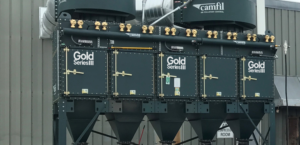Can technology solve our air quality and climate change problems? In a post on our old blog, I briefly examined technology’s role in helping and hurting air quality. My conclusion was that as long as humans continue to put short-term convenience and profits in front of long-term benefits, technology won’t make much of a difference. I still hold to that opinion.
However, an article I ran across recently has made me cautiously hopeful that perhaps technology can make a dent in our air pollution and climate change woes. Frankly, there’s a lot of doom and gloom when reading (and writing) about climate change, and for good reason – we have grave problems that aren’t easy to solve. Nevertheless, it’s good to look at a few developing technologies that might just make you a bit more optimistic about the future.
Reasons for Optimism
The article is in The Guardian, and is entitled “The seven megatrends that could beat global warming: ‘There is a reason for hope'.” Here are my notes from reading it:
- Trillion-dollar(!) investments are spurring tech that mitigates or averts global warming consequences. That gigantic investment is leading to positivity for some leading climate change advocates.
- Carbon dioxide gets all the press, but methane is a major driver of global warming, and livestock agriculture is the major source of it. The problem is that a growing number of people like to eat meat and dairy products, causing methane levels to rise. The solution: plant-based “meats” and dairy substitutes, which have a much smaller environmental footprint and sidestep animal cruelty and quality of life concerns. This one’s tough. The article leads you to believe that plant-based products are always healthier, but I’ve read from other sources that some of these foods are not as healthy as their animal-based brethren. Who to believe?
- Renewable energy technologies continue to grab a greater share of the electrical pie. Solar panel and wind power production costs have fallen by 90% in the last ten years. This leads to what might be my favorite fact from the article: two-thirds of all new power in 2016 came from renewable sources.
- Coal production is falling. The dirtiest of all fossil fuels is falling in use, due to cheaper wind and solar power.
- Electric cars are becoming more common. They still occupy only 1.25% of all new car sales, but their usage rate is growing. This seems to be a good thing, especially for urban areas with bad air-quality levels. But I’ve always wondered about electric cars and their batteries: aren’t they only as clean as the electricity that powers them? If you’re charging your car with electricity provided by burning coal, that doesn’t seem to solve any problems. On the other hand, as renewable energies continue to grow, it seems to make electric cars all the better.
- Better batteries. Electric cars and renewable energy technologies require batteries, and the cost of lithium-ion versions have fallen 75% in recent years. Personally, I would prefer to see more innovation in some kind of technology other than batteries to store energy. They’re expensive, heavy, and their innards are toxic.
- Continued progress with energy-efficient homes, businesses, and transportation. The EU has improved its efficiency by 20% in the last 18 years or so. This is another tough one to make progress on, as it requires commitment from millions of people. But it can (and has) been done.
- Improved forest-management techniques. Trees clean the air, while industrial and agricultural initiatives that result in the removal of our forests make it dirtier. We’re not doing enough here; only 2% of financial climate change resources are devoted to forests. The good news is that it can be done – China, India, and South Korea have removed 12 billion tons of carbon dioxide from the atmosphere by planting trees. We need more of this.
Making it Happen
There’s some feel-good stuff here. Reasons for hope. But don’t assume that climate change will take care of itself simply through new technology. As the article itself acknowledges, experts are still pointing toward the complete removal of fossil fuel use as the final solution to air pollution and global warming. We’re a long way from making that happen.
Until it does happen, may we all remember that we have a personal responsibility to do our part in keeping the air clean: driving less, biking, carpooling, turning off unused lights, using only the resources we need, and so on. Perhaps if more of us do that, and technology like our industrial dust collectors continues to improve, our great-great-grandchildren won’t have to think about pollution.




